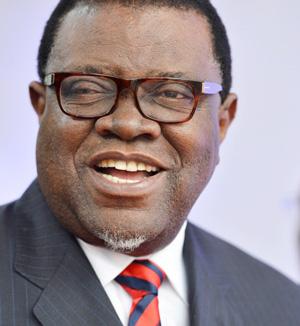
NUST to help solve water and sanitation problems

The Namibia University of Science and Technology (NUST) signed a Memorandum of Agreement (MOA) with Seecon International GMBH on 19 April 2016 at NUST Hotel School. The MOA seeks to find solutions with entrepreneurs to solve the dilemma of lack of access to basic and humane sanitation and clean drinking water.
Dr Gert Gunzel, Deputy Chancellor of Administration and Finance at NUST said on behalf of Tjama Tjivikua, Vice Chancellor of NUST that over a 100 million people in the 15 Southern Africa Development Community (SADC) countries do not have access to clean drinking water. “Therefore I am excited about the significance and the timeliness of the signing of this MOA that recognises that solutions to the persistent sanitation, water and resource management problems will not only come from large corporations, but equally small and medium enterprises have an important role to play,” he added.
He also announced that the Namibia Business Innovation Institute (NBII) will provide business development support to the identified entrepreneurs who have innovative and commercially viable solutions to the sustainable sanitisation, water and resource management challenges. “This will be done alongside experts from Seecon International and the Department of Civil Engineering will provide the technical support and also provide smart sanitation solutions that are integrated into water resources management so that the loop is closed,” he emphasised.
Dr Johannes Heeb, Senior Partner of Seecon International GMBH said that they aim to create a network of incubators for young entrepreneurs, to create a cluster of companies that work together to solve the issue of sanitation, water and resource management problems. Seecon International GMBH is a Swiss based SME that implements project in the fields of sustainable development, ecological engineering and water resource management.
The MOA sets out how to launch and operate a functional regional cluster to be named the Centre for Resource Management and Innovation-Based Cooperation (CERMIC). Through CERMIC the partners will facilitate business development for local small and medium enterprises as well as offer services for matchmaking and innovation based business brokering process between European and Namibian businesses. It is a three year project to end in August 2018, that will capacitate enterprises to develop solutions to address water and sanitation problems.











































